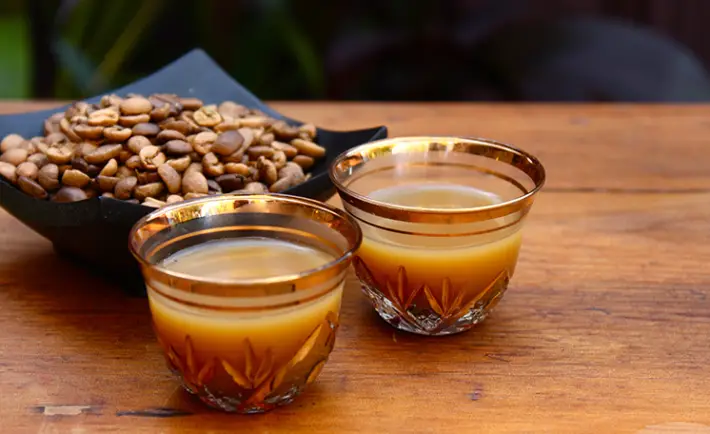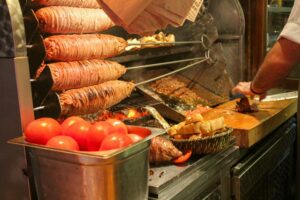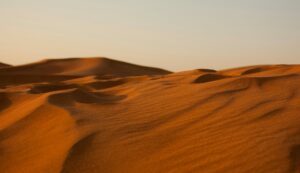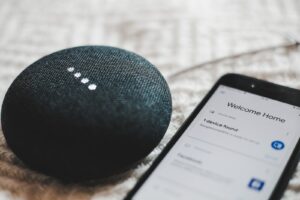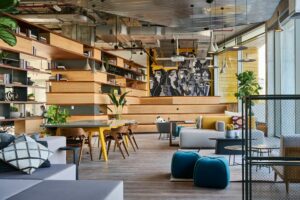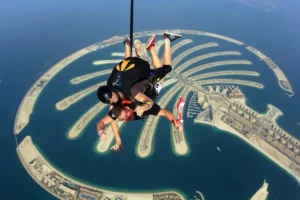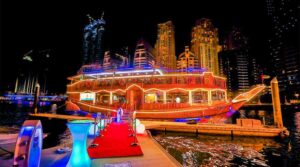The Arabs’ go-to social beverage is Arabic Coffee, or Gahwa since it is more well-known.
Arabic Coffee includes Turkish Coffee, but Gahwa is prepared strictly following Arab customs.
Across the Arabian peninsula, the Gahwa has been a staple for generations.
Languages considerably expand the specifying variety. When spoken in Egyptian Arabic, the ‘QA’ becomes a glottal stop, and the word is pronounced ‘aweh. Gahweh is the preferred form in various Arabic-speaking countries.
Gahwa is traditionally prepared with Arabica coffee beans, which create 80% of the world’s Coffee.
In this post, we will acknowledge everything regarding Arabic coffee in UAE.
History Of Arabic Coffee
The Locals claim that Arabian shepherds found Coffee. Their goats were discovered to have higher energy after eating a certain berry So the Arabs eventually started using them in energy drinks.
Arab coffee culture predates the West by hundreds of years. The Dutch word ‘koffie,’ from which we get the English ‘ Coffee,’ is derived from the Turkish ‘kahve,’ which comes from the Arabic Qahwah.
The Arabian Peninsula is the birthplace of Gahwa, according to UNESCO.
In 2015, UNESCO added the Arabic Coffee and Majlis to its list of Intangible Cultural Heritages, highlighting the importance of conserving these traditions.
Today’s brewed Coffee originated with the Arabs, who discovered the secret to extracting flavor from roasted beans.
Over time, countries like Indonesia, Central America, Kenya, & China started growing Arabica beans and trading them to countries that had never experienced their unique flavor.
Arabica coffee beans, known for their high quality and purity, are now grown everywhere.
How To Make Arabic Coffee “Gahweh”?
Prepare Coffee Powder & Spices
To make a fantastic cup of Coffee, it is crucial that the beans be of high quality and that the grinding be precise. Make a fine powder out of the beans.
About a tablespoon of coffee powder is needed for each 60 ml serving. Separate the coffee powder from the spices by grinding them into a fine powder.
Heat the water
Boil some water in Dallah. When the water comes to a boil, take it off the heat and let it cool for 30 seconds.
Add Gahweh
Dallah should be re-heated with the coffee powder added, but this time with no stirring.
When the water returns to a boil, reduce the heat to a simmer and leave it for 10 minutes. When foam forms on the surface, it’s time to take the pot off the heat.
Add Spices
Dallah should be re-heated after the ground spice mixture has been added. Raise the temperature until foam begins to develop on top.
Serve The Coffee
Keep the Coffee steady for a few minutes so the foam will subside, and the grounds can fall to the bottom.
All right, you’re all set to serve. While sugar isn’t typically served with Coffee, there’s no harm in adding a touch if you choose. Finjan requests filtered Coffee, so please prepare it accordingly.
Best Places To Drink Arabic Coffee
In Dubai, people are constantly looking for the best coffee shops in Dubai. Thankfully, Arabic Coffee, a rich and powerful blend often boiled in a tin and copper dallah (small pot) and served without sugar, is readily available in Dubai.
You can choose from traditional Arabic Coffee flavored with cardamom and saffron, or go for something more traditional like a straight Arabic coffee. Following are the best places to drink Arabic coffee.
Khan Murjan
Located in the heart of the Khan Murjan souk, this cozy spot features decor that perfectly complements your favorite caffeine boosters, thanks to its inspiration from Syrian culture and oud music.
Khan Murjan serves traditional hot beverages and a spread of authentic Arabic cuisine prepared with only the finest ingredients.
Location: Wafi Mall
The Coffee Museum
Caffeine friends will find paradise at the Coffee Museum. The live-brewed hot drinks, which are based on ancient Emirati brewing, add to the overall experience beyond just the authentic Arabic Coffee.
Location: Al Fahidi District
Café Bateel
Cafe Bateel is well-known throughout the Middle East, so it should come as no surprise it is a popular destination for purists of the classic brew.
If you want to spice up your coffee experience, Bateel has a wide selection of signature qahwas, royal qahwas, and inventive flavors like date latte. Even the food is tailored to the season of Ramadan.
Location: The Dubai Mall, Media City, Town Centre Jumeirah
H’S Coffee
H’S Coffee is proud to serve some of the best Coffee in the area, as the beans they use are widely regarded as among the best in the world.
Check out their soon-to-open café if you’re the type who actively seeks out new caffeinated haunts. With saffron and other traditional flavors flowing forth, their Emirati Coffee is hard to beat.
Location: Al Bateen – Abu Dhabi – United Arab Emirates
Best Places To Buy Coffe in Dubai
A cup of Arabic Coffee in a cafe or restaurant may cost anywhere from 5 SAR to 10 SAR, though this range is subject to change based on the café’s location, the quality of coffee beans used, and the demand.
1. Raw Coffee Company
The name Raw Coffee Company is widely recognized throughout the city of Dubai. Since 2007, providing authentic Arabica beans to Dubai residents has played a major role in the Middle Eastern coffee industry. It comes straight from growers in Colombia, Peru, & Nicaragua.
Coffee made from these beans has a rich, satisfying flavor. AED 120 will get you a pound of Ethiopian Guji beans, a pound of Sidamo beans, and a pound of naturally processed Chiapas beans.
2. Boon Coffee
One of Dubai’s finest Coffee roasting establishments. Here you will find the finest roasted coffee beans available everywhere.
These beans, sourced from several regions in the Middle East, are the epitome of consistency & aroma. Each package of Harrar, Yirgacheffe, Kaffa, or Guji Coffee costs AED 45.
3. Orbis Coffee
Passion for Coffee is what sparked the creation of Orbis Coffee. Plain, gourmet, and flavored coffees with Middle Eastern characteristics are available here.
The Orbis Arabic Coffee with Cardamom is another option, as is the traditional Plain Arabic Coffee. Both are available for purchase, with the former costing AED 18 and the latter AED 22.
Conclusion
Therefore, drinking Arabic Gahwa Coffee is beneficial, but in excess, it can be harmful. Almost any substance consumed in excess has the potential to cause illness.
Traditionally, Arabic coffee is prepared in a dallah or a stovetop kettle, poured into a dallah, and then served in tiny thimble-like cups called finjaan.
Still, a dallah & finjaan aren’t necessary to drink any qahwa. If you don’t have any smaller cups or glasses, use what you have.
Use espresso mugs for this purpose. We hope you must have acknowledged everything regarding Arabic coffee.
Reference
(2016, December 20). The 6 Top Places To Get Arabic Coffee. Lovin Dubai. Retrieved February 8, 2023, from https://lovin.co/dubai/en/inspo/best-of/the-6-top-places-to-get-arabic-coffee
Hooshmand, D. (2019, March 30). Arabic Coffee: A Complete Guide by Coffee Nerds. Discover Discomfort. Retrieved February 8, 2023, from https://discoverdiscomfort.com/arabic-coffee/
Mehta, S. (2000, January 1). The brewing culture of Arabic coffee in the UAE. Khaleej Times. Retrieved February 8, 2023, from https://www.khaleejtimes.com/listicles/the-brewing-culture-of-arabic-coffee-in-the-uae
Arabic Coffee | How to Make Traditional Arabic Gahwa. (n.d.). Arabic Coffee | How to Make Traditional Arabic Gahwa. Retrieved February 8, 2023, from https://www.dayoutdubai.ae/blog/safari/arabic-coffee/

